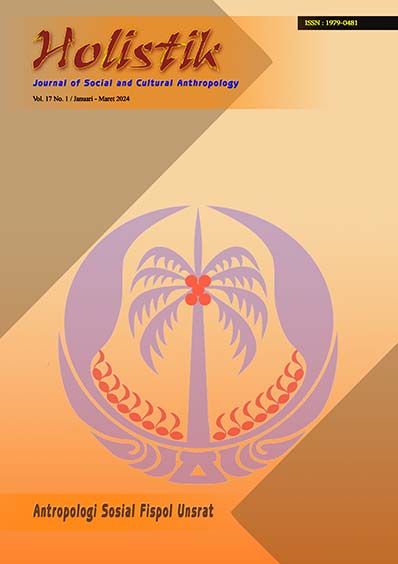TRADISI ADAT TANAM SASI KEMATIAN PADA MASYARAKAT SUKU MARIND DI KAMPUNG WASUR KABUPATEN MERAUKE
Abstract
People from various tribes in Papua have so many traditions related to Papuan traditional beliefs, rituals, and ceremonies that are still carried out today. Traditional ceremonies carried out by the Papuan people have their own forms, cultures and philosophical values and are different from other regions.
The Marori tribe is a small tribe and indigenous language within the large Marind Anim (Marind people) family that inhabits Wasur village, Merauke Regency, Papua. Marori people know the sar system or other names Tanam Sasi in regulating the use of natural resources. The sar system is a prohibition to take natural resources for a long period of time (one thousand days) and is related to respect for relatives who have died. Sar was set after forty days of death.
Tanam Sasi certainly has meaning for the community in general, the Marind tribe, which is a typical Papuan wood carving that symbolizes the presence of ancestral spirits. As a sign of the state of heart for the Papuan people, such as expressing a sense of sadness and happiness. It is intended in addition, as a symbol of trust from the community through human, animal, and plant motifs on it, and also as a symbol of beauty in the form of works of art and masterpieces in the Marind Tribe.
The Traditional Ceremony of Tanam Sasi Death which is a symbol of sadness for grieving families. This Tanam Sasi Tradition, in addition to being a symbol of expression of sadness for grieving families, and also the Tanam Sasi Tradition can also function as regulating the use of natural resources.
Keywords: tradition, prohibition, tanam sasi

